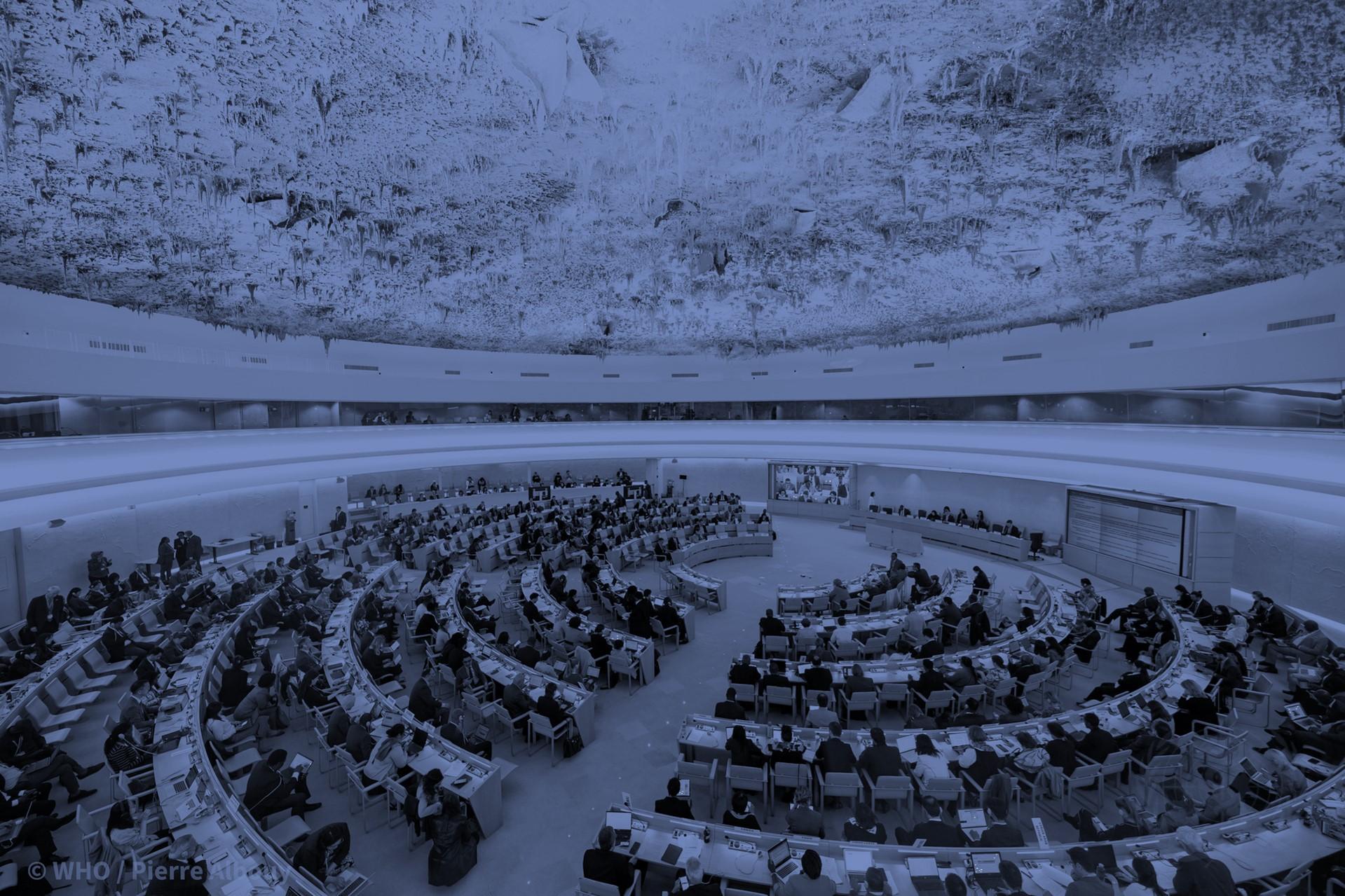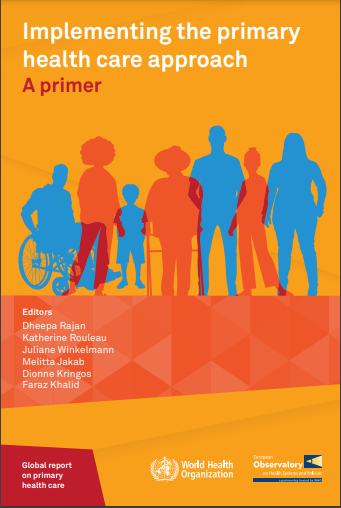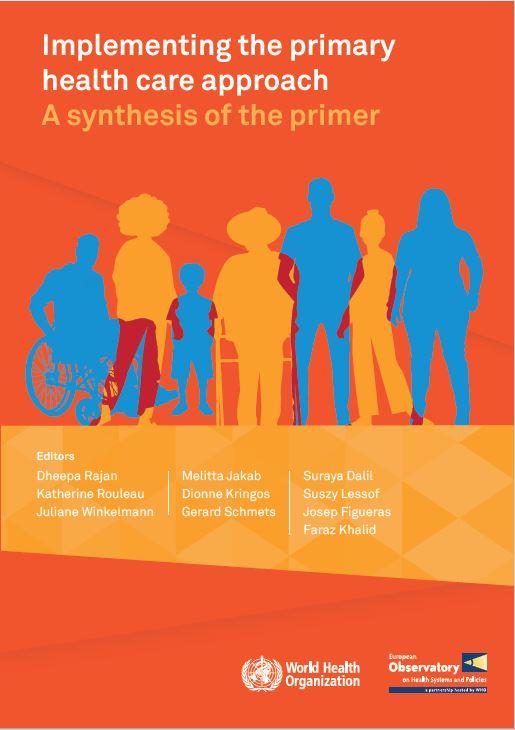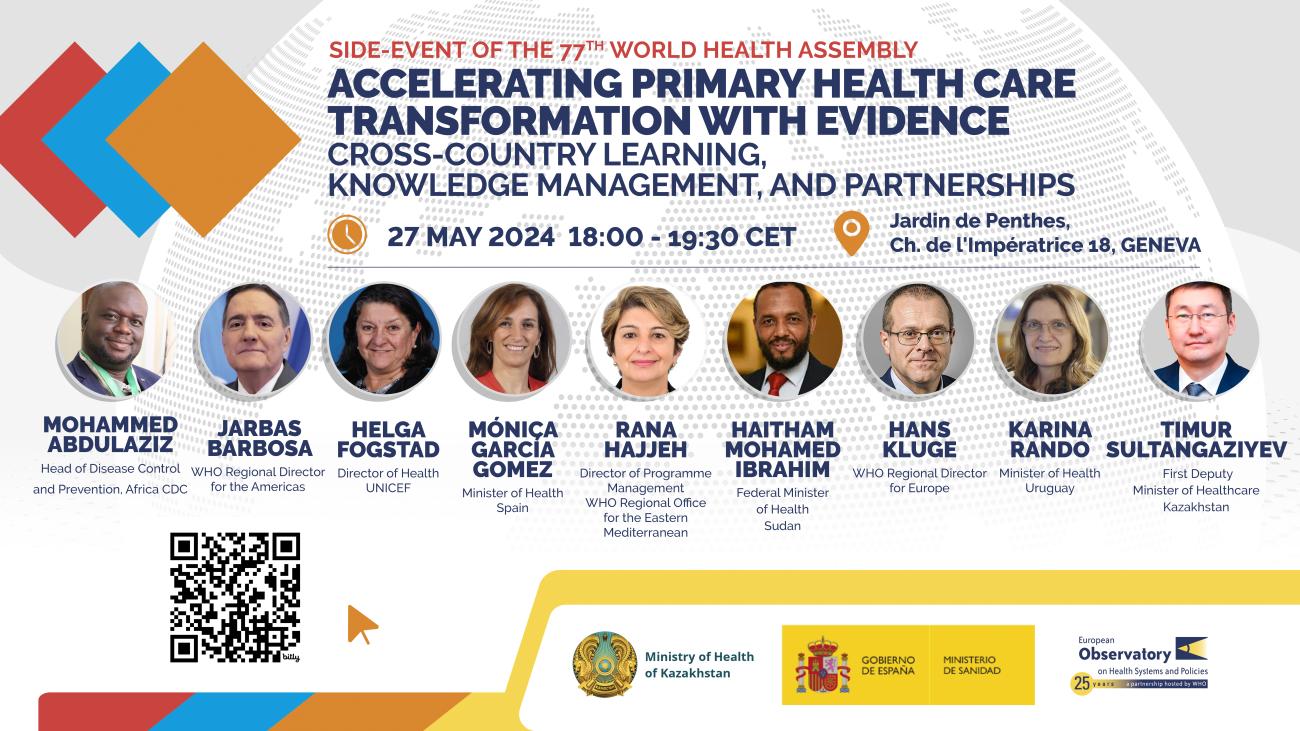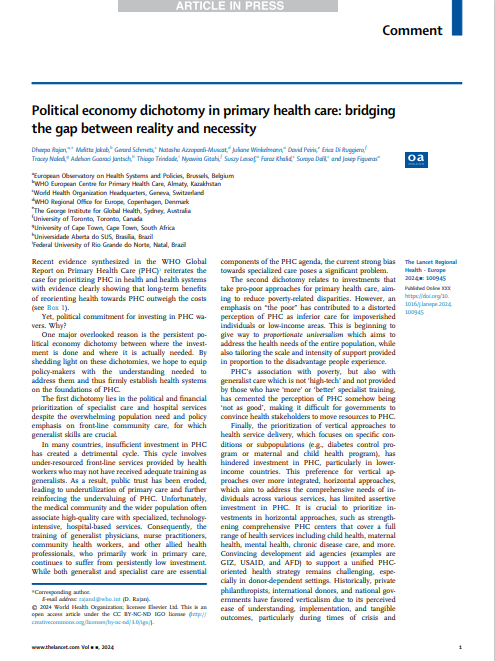Reorienting health systems through a primary health care (PHC) lens is the best way to advance the goal of affordable health care for all. However, the realization of this vision hinges upon both political leadership and financial commitment to put the evidence into practice. This was emphasized by PHC experts during a side event of the 77th World Health Assembly in Geneva on 27 May 2024.
The World Health Organization (WHO) Regional Director for Europe, Hans Kluge, warned that the role of primary health care has never been more crucial, considering the high rates of financial hardship caused by out-of-pocket payments for health care. “Reaching universal health coverage (UHC) by the finish line of 2030 requires commitment by governments and policymakers to invest substantially in the wider public sector ecosystem within which health is situated,” he said.
Hosted by the European Observatory on Health Systems and Policies, Kazakhstan and Spain, the aim of this event was to spotlight the latest and upcoming global products on PHC and discuss opportunities to intensify cross-country and regional exchanges for an accelerated implementation of the PHC approach.
Global evidence, case studies, partnerships, and capacity-building
The hybrid event, drawing more than 2300 registrations, addressed the practical implementation of PHC through four key approaches: evidence synthesis, learning and knowledge management, partnerships, and regional and country forums. Suraya Dalil, Director of the WHO Special Programme on Primary Health Care, explained that the discussions would not necessarily focus on what PHC is, or on why the PHC approach is important, but rather on how it is applied in different settings.
It was an opportunity to present the recently released PHC Primer, developed by the WHO and the European Observatory, which explores the 'how' of primary health care. The Primer compiles best practices and country implementation experiences, highlighting enablers and barriers for policymakers and practitioners to learn from.
The PHC Primer was produced with funding support from the UHC Partnership which includes contributions from Belgium, Canada, the European Union, France, Ireland, Japan, Luxembourg, the United Kingdom of Great Britain and Northern Ireland, and the World Health Organization (WHO).”
Initiatives and challenges at regional and country level
The two hosting countries of the event are at the forefront of primary health care (PHC): Kazakhstan is recognized as the birthplace of primary health care with the Declaration of Alma-Ata in 1978; and Spain serves as a reference for many countries due to its workforce. The WHO PHC Demonstration Platform has also recently launched in Spain, becoming the third platform country in the WHO European Region, following Kazakhstan and Sweden.
In Africa, the pivotal role of community health workers in delivering PHC, particularly for immunization services, was highlighted by Mohammed Abdulaziz, Head of Disease Control and Prevention at the Africa CDC. This underscores the continent’s commitment to enhance primary health care through local communities.
Countries in the Americas are also investing and strengthening PHC approaches post-pandemic to strengthen health system resilience and address diverse public health issues. Jarbas Barbosa, Director of the Pan-American Health Organization (PAHO) stated that countries in this region recognize primary health care as the foundation for universal health coverage and greater equity.
Uruguay, for example, presented its efforts to tackle rising mental health challenges through comprehensive training programmes for family doctors, demonstrating a PHC approach to a wider public health issue.
Despite its undeniable importance,PHC remains a low priority and is under-funded in many countries. This gap highlights the urgent need for governments to prioritize PHC and spur much-needed investment.
An overarching message emerging from the panel was the intertwined nature of health and peace, in the context of today’s permacrisis. Political stability is a prerequisite to achieve health outcomes, making not only health but also peace a political choice.
Related
- Comment: Political economy dichotomy in primary health care: bridging the gap between reality and necessity (The Lancet Regional Health - Europe)
- Session recording: Accelerating primary health care transformation with evidence
